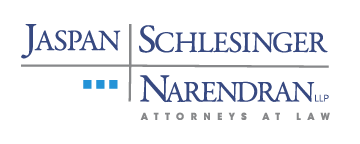Following the Federal Labor Standards Act (FLSA) expansion of rights for nursing employees, New York recently revised New York Labor Law section 206-c to mandate paid break time for lactation. New York labor law had previously provided for reasonable unpaid break time to express milk.
The FSLA establishes that most employees (including those who telework) have the right to reasonable break time, as needed, to express breast milk for one year after the child’s birth. Additionally, employers must provide a private location, other than a bathroom, for a nursing employee to express milk. Employees who telework must also be free from observation by any employer-provided or required video system, including computer camera, security camera, or web conferencing platform. The FLSA prohibits employers from retaliating against an employee who files a complaint. Fact Sheet #73 delineates additional information on the requirements and remedies available under the FLSA for covered employees to pump breast milk at work.
Under NY law, all employers are required (i) to provide 30-minute paid break time and permit an employee to use additional paid break time each day to express breast milk for a nursing child for up to three years following child birth, (ii) to make reasonable efforts to provide a location, other than a restroom, where an employee can express milk in privacy, and (iii) not to discriminate or retaliate against an employee who chooses to express breast milk in the work place. Furthermore, if the workplace has access to refrigeration, the employer must extend such access to refrigeration for the purposes of storing the expressed milk.
Upon request of an employee who chooses to express breast milk at work, an employer must designate a room or other location that is: (i) in close proximity to the work area, but not a restroom; (ii) well lit; (iii) shielded from view; (iv) free from intrusion from other persons in the workplace or the public; and (v) at a minimum, equipped with a chair, a working surface, nearby access to clean running water and, if the workplace is supplied with electricity, an electrical outlet. If the location is not dedicated for use by employees to express breast milk, such location must be made available to such an employee when needed and must not be used for any other purpose or function while in use by such employee. Employers must provide notice to all employees as soon as practicable when such space has been designated for use by employees to express breast milk.
Where compliance with the requirements to provide a designated room or location described above is impracticable because it would impose an undue hardship on the employer by causing significant difficulty or expense when considered in relation to the size, financial resources, nature, or structure of the employer’s business, the employer must make reasonable efforts to provide a room or other location, other than a restroom or toilet stall, that is in close proximity to the work area where an employee can express breast milk in privacy.
Recently, New York State Department of Labor (NYSDOL) updated its Policy on the Rights of Employees to Express Breast Milk in the Workplace (available here), including an expanded number of foreign languages in which such policy is available. The foreign languages now included are Albanian, Arabic, Bengali, Chinese, Greek, Hatian-Creole, Hindi, Italian, Japanese, Korean, Polish, Russian, Spanish, Urdu, and Yiddish. New York State has also provided written template policies in these languages, which are available here. At the time of hire, annually, and upon an employee’s return to work following childbirth, employers must provide the NYSDOL policy to such employee.
NYSDOL has provided answers to frequently asked questions and additional resources on its website.
***************
For further information or guidance on revising your policies and procedures, please contact David Paseltiner or Rose Egan.


